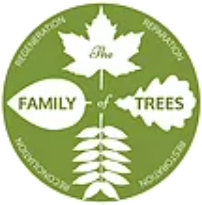Use this guide when planning an event, whether an office meeting or a large public event. To download this list online, visit doitgreen.org.
Reduced Waste Planning
- Include and inform everyone involved with the event planning about low waste practices and goals.
- Set up a web site to post event information, instead of paper communications and mailings.
- Purge mailing lists to eliminate invalid or duplicate addresses.
- Use the backside of paper for drafts, use paper with recycled content, and print double-sided.
Publicity
- Print on recycled paper.
- Print with soy or vegetable inks.
- Use web sites to offer more information, forms, media kits, etc., reducing paper for publicity and postage costs!
- Print addresses directly onto envelopes, avoiding address label waste.
- Use removable or erasable dates for signs and posters, to allow for reuse.
- Instead of direct mail, consider newspaper, newsletters, or radio announcements.
- Publicize your event via e-mail, web sites, and social media, like Facebook or Twitter.
Presenters & Exhibitors
- Encourage speakers to prepare computer presentations instead of handouts. If handouts are required, ask them to print double-sided.
- Offer resources or copies of presentation materials via email or download from a web site.
- When requiring pre-registration, consider offering online registration.
- At events where vendors are participating, communicate to them what recycling options will be available, to encourage them to only distribute those items (i.e. sampling in paper cups if composting, beverages in cans only if only recycling aluminum, etc).
At the Event
- Announce your low waste goals to exhibitors and attendees on the day of the event and let them know how they can help.
- Use signage to let event visitors know about special low waste or environmental practices or choices you made for the event. For example, “Your lunch has been provided by ____ Caterers who are serving seasonal and organic foods today! Or: Please compost all of your food scraps here to reduce waste from this event.”
- Consider displaying the agenda or other lists on easels, instead of printing individual handouts.
- Use reusable name holders and collect them afterwards.
- Use dry erase boards or chalkboards instead of flip chart paper.
- Use centerpieces that are reusable or can be taken home, such as plants in pots.
- Offer reusable or durable remembrances of the event instead of one time use or items with a short life. For example, reusable travel mugs, tote bags, plants, and recycled pads of paper instead of pens or plastic toys.
Food & Recycling Waste
- Provide reusable items for serving and eating food such as silverware, glasses, mugs, plates, and cloth napkins. If no kitchen is available, find someone willing to take them home to wash.
- If using paper for food serving and eating, consider offering plates, cups and silverware made of recycled content. Check with the recycling provider at the event site on composting options. For small events, a volunteer may be willing to take paperware home to compost. Over time, paper products will break down in a backyard compost bin.
- Compost food scraps. If it is a small event, see if you can find someone to take the organic material home afterwards. If it is a large event, work with your waste or recycling hauler to get the materials to a commercial compost facility. If your city has curbside composting service, put food scraps and paperware at the curb for composting.
- Avoid plasticware. Plastic products are made from petroleum and cannot be recycled or composted (only plastic bottles can be recycled). Paper products and compostable products give you the option to compost.
- If you use compostable products at your event, be sure you have a place to take them when the event is over. There is very little, if any, benefit to disposing of compostable products, but there is a significant environmental benefit to composting. Compostable products do not do well in a backyard compost bin and need to be taken to a commercial compost facility.
- Request and offer clearly labeled recycling bins, compost bins, and services for your event. Consider attaching samples of each waste item that will be generated at your event on a sign above the proper disposal container. Make a plan for where these materials will go once the event is over.
- Serve bite-size or finger foods that require no utensils or choose entrées that can be served in large containers versus over-packaged box lunches. For example, self serve pasta in a large bowl or party sub sandwiches.
- If serving box lunches, ask if they can be wrapped or packaged in recyclable material. For example, foil is recyclable versus plastic wrappings.
- Accurately estimate attendance when placing orders or confirming a catering order. Consider placing a pre-order with your caterer and confirming the total attendance a few days beforehand to provide a more accurate number. Be sure to ask for special diet requests ahead of time to avoid wasted food that your guests cannot eat.
- Look for a convenient location near bus lines or mass transportation to avoid excess driving.
- Offer directions to your location by bus or light rail to make it easier for participants to use mass transportation. Offer directions by car for those who have no other options.
- Seek meeting rooms with natural lighting to conserve energy.
- Seek a location that already offers recycling and composting services.
- Try to find a caterer that offers reusable items for serving and eating food, like silverware, glasses, mugs, plates, and cloth napkins that can be washed.
- Consider caterers that use local, seasonal, and organic foods.
- Local office supply stores or copy centers usually offer 30% recycled or 100% recycled papers for printers.
- For recycled content or biodegradable plates/cups/silverware, try your local natural foods store at themix.coop/?q=locations.
- For real dishes, visit your local resale shop for mismatched silverware, plates, and cups, or call a rental company for pricing.
- Provide receptacles labeled ‘Bottles & Cans’, ‘Liquids’ and ‘Compostables’.
- Plan ahead! Communicate your waste reduction goals to all involved.
- Use reused materials or materials with recycled content.
- Provide reusable items instead of disposable items when offering food.
- Use easily recyclable items.
- Be sure recycling containers are clearly marked at your event.
- Monitor recycling containers and trash cans during the event.
Act Locally
Eureka Recycling provides professional zero-waste services for large events in the Twin Cities
St. Paul, MN
651-222-7678
eurekarecycling.org/bg_coop.cfm
Low Waste Event Planning







